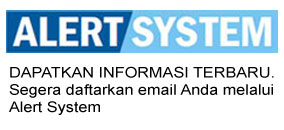PMAC 2020
Parallel Session 2.3
Leveraging Strategic Purchasing for UHC through Strengthened Governance
Saturday, 1st February 2020
Caryn Bredenkamp, Grace Kabaniha, Loraine Hawkins, Jack Langenbrunner, Lydia DsaneSelby, Jadej Thammatch-aree, Jin Xu
Side Meeting
Opening Session
Plenary Session 0
Plenary Session 1
Parallel Session 1.2
Parallel Session 1.4
Plenary Session 2
Parallel Session 2.1
Parallel Session 2.2
Parallel Session 2.3
Parallel Session 2.5
Parallel Session 3.2

This session draw attentions to strategic purchasing as an important health financing function. The objectives of the session are to understand the issues around strategic purchasing and learn from country experiences. Strategic purchasing means actively using the allocation of funds from purchasers to healthcare providers to achieve UHC objectives by using information on provider performance and/or the population’s health needs in how purchasers’ contract, pay and monitor providers. This session identifies two factors that significantly affect strategic purchasing: governance and institutional capacities.
Governance is an overarching health systems function and is about ensuring strategic policy frameworks exist and are combined with effective oversight, coalition-building, regulation, attention to system-design and accountability. In short, it has two main tasks, setting strategic direction and ensuring accountability for use of resources and performance. It operates at system level and agency level. Countries are situated in the spectrum of health purchasing agencies as an arm of MOH and as an autonomous strategic purchaser. When health purchasing agencies are more autonomous and have higher capacity, they tend to have stronger decision authority over relevant policy levers and are able to generate better outcomes on efficiency, access, financial sustainability.
Strategic purchasing can be significantly influenced by political power. In many countries, politicians and local governments can influence what services to be purchased for whom. Therefore, matching autonomy and institutional capacities of purchasing agencies are key to improve strategic purchasing.








